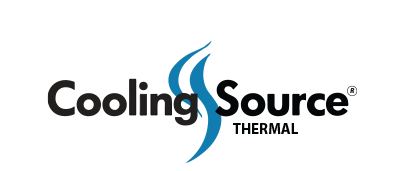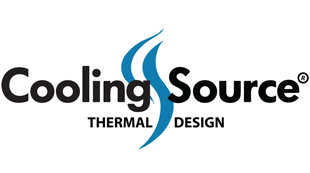HEAT PIPE IN ELECTRONIC COOLING, GENERAL HEAT PIPE INFORMATION
Cooling Source Heat Pipes assemblies have emerged as the most important tool available for the transfer of heat energy.
How does the thermal engineer cope with conflicting demands for small package that incorporates sufficient cooling to insure high component reliability and long component life?
The thermal design of equipment has become as important as the electronic design itself. Overheating shortens component life, threatens specification compliance by decreasing performance.
Of the carious means of transferring and dissipating this heat, the heat pipe is in many respects the most satisfactory.
The heat pipe is a self-contained device of very high thermal conductivity. Heat pipes are relatively small and lightweight, they transfer heat at a high rate over a considerable distance with extremely small temperature drop.
What is heat pipe and what is major variables associated with heat pipe performance?
Heat Pipe in Electronic Cooling, The heat pipe is a sealed tube which enclose a capillary wick. The wick is saturated with the liquid phase of working fluid. The remaining volume of the tube contains the vapor phase.
In its longitudinal direction, the heat pipe contains an evaporator section and condenser section which are separated by an adiabatic section. As heat is applied externally at the evaporator end, the fluid in that section vaporizes. The resulting difference in pressure drives vapor from the evaporator to the condenser section, where it condenses thus releasing the latent heat of vaporization. The condensed fluid travels by capillary action along the wick back to the evaporator end. Then the whole cycle repeats. The heat pipe can therefore transport a large amount of heat with small unit size and weight.
VARIABLE ASSOCIATED WITH HEAT PIPE PERFORMANCE:
- Total heat carried from the input end to the output end in Watts.
- Thermal gradient in heat pipe along its length.
- 3-Input and output thermal drop.
- Gravity orientation.
- Maximum storage or use temperature.
TEMPERATURE OF OPERATION:
Heat Pipe in Electronic Cooling, Heat pipe performance is function of it’s temperature. The higher the temperature the, the more conductive the unit and the lower the overall thermal drop.
A heat pipe is not damage when allowed to cool below it s temperature rating; it may cease to function but will resume normal activity when warmed again to within its operation limits. The maximum storage temperature range is always calculated for use under atmospheric pressure, and the range will be lower in a vacuum or at high altitude.
CUSTOM DESIGNS:
Cooling Source engineers can design and build custom heat pipes heat sinks to solve any thermal problem. The cost on special heat pipes are comparable with those of standard models, since most of custom devices can be made largely from properly selected and assembled standard components.
TYPICAL HEAT PIPE APPLICATIONS
Heat Pipe in Electronic Cooling, Heat pipes, because of their lightweight, compact structure and their efficient, virtually isothermal operation, have found a wide variety of applications.
Heat pipe applications can be grouped into:
- Cooling
- Temperature leveling and eliminating hot spots
- Remote cooling (separation of heat source and heat sink)
- Constant temperature maintenance
- Temperature control
COOLING SOURCE ISOTHERM HEAT PIPE ASSEMBLY

Contact us
CALL US TODAY FOR A FAST FREE QUOTE: 925.292.1293.


